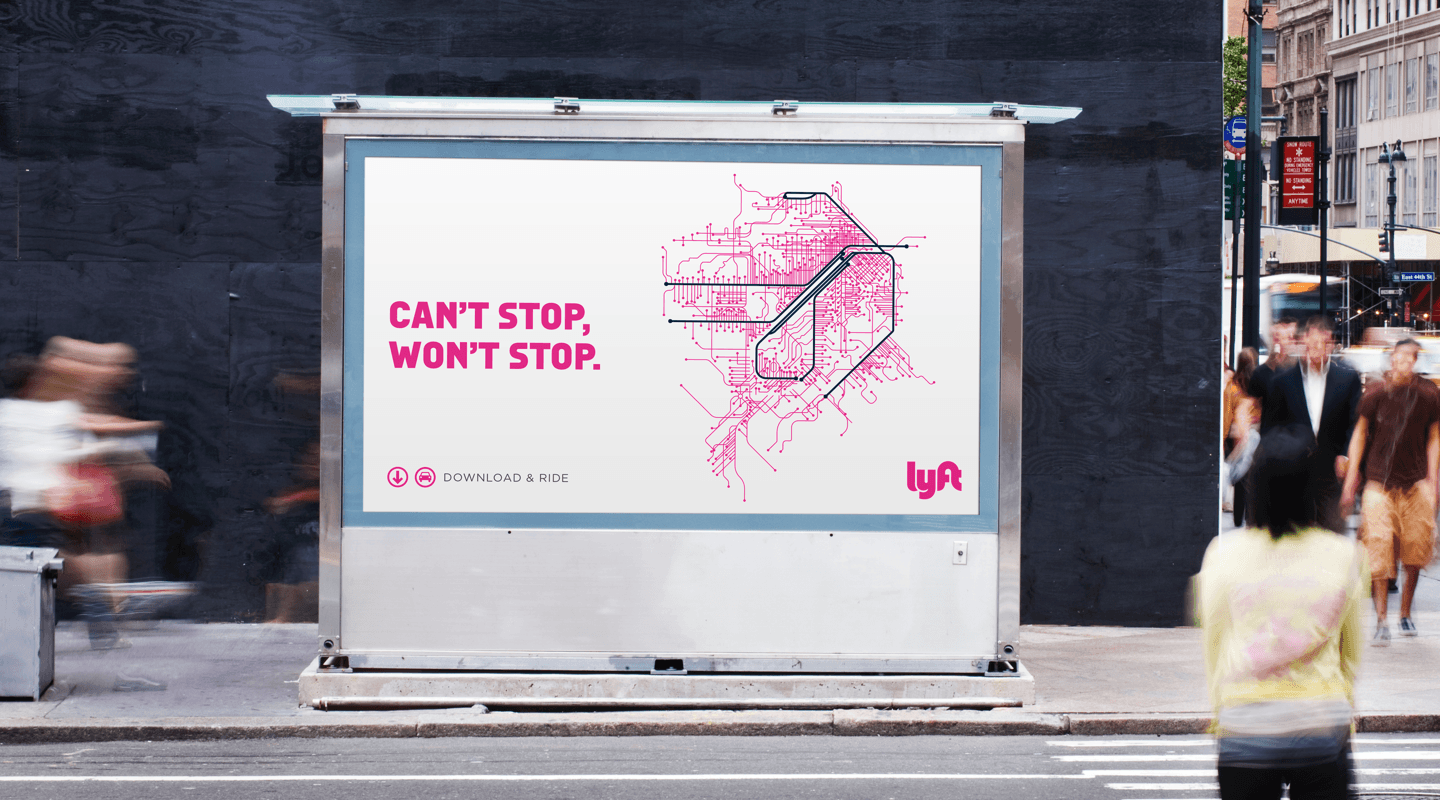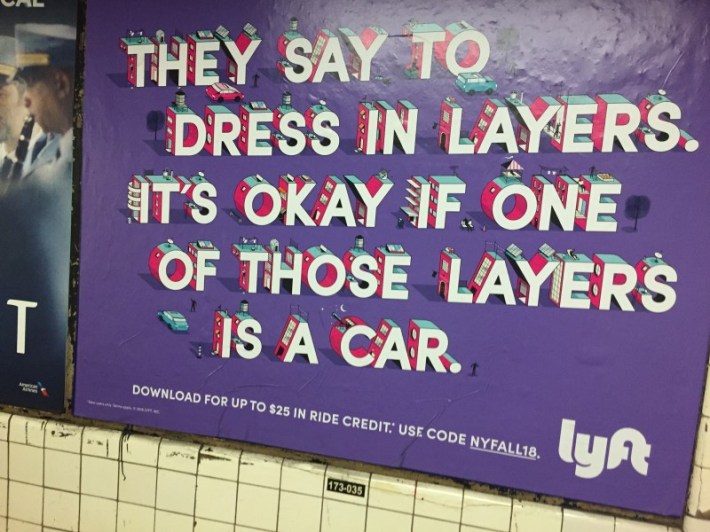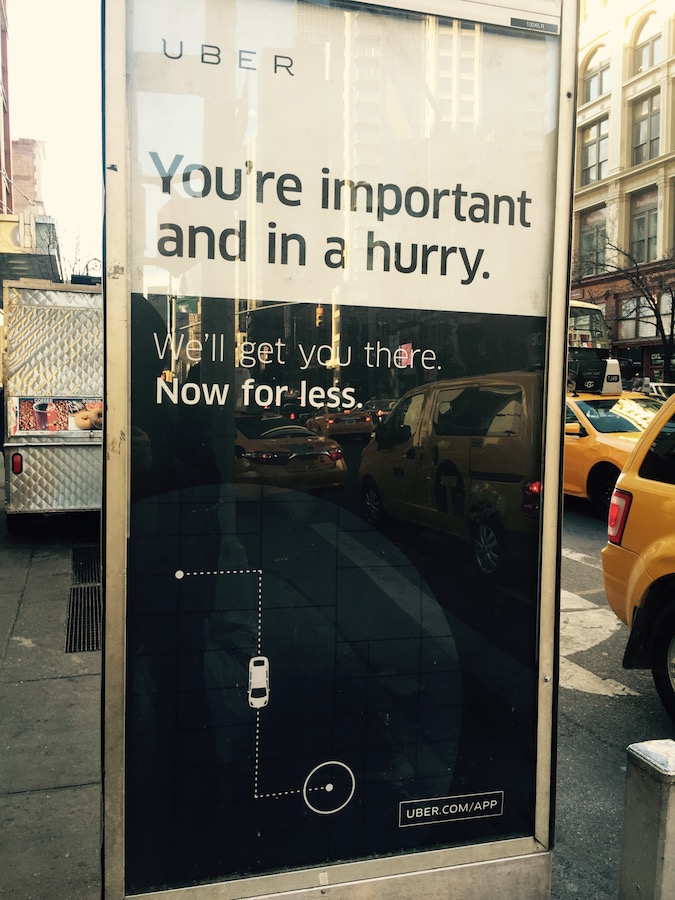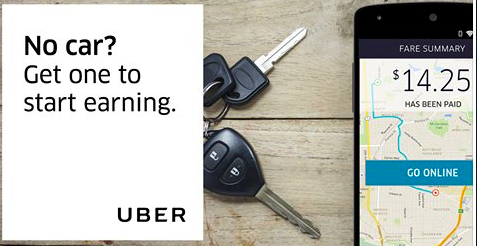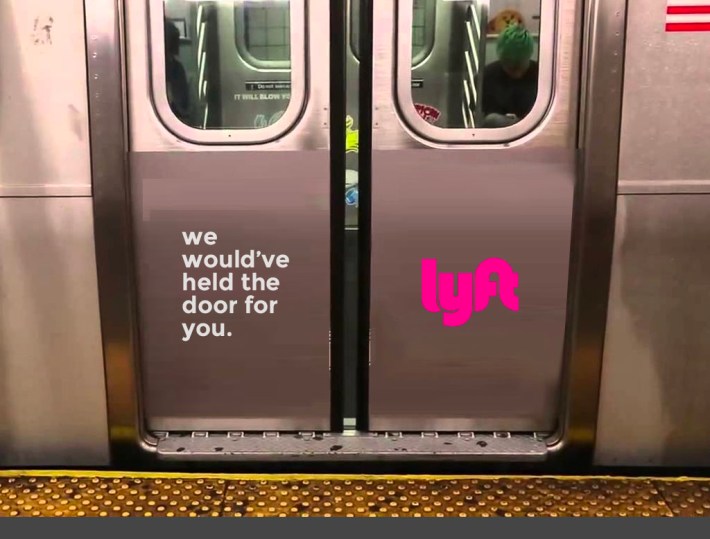The matter is pretty much settled: Uber and Lyft are worsening congestion — especially in some of our most congested cities, undermining transit and, according to a recent study, increasing traffic fatalities. Uber and Lyft are even — whomp whomp — encouraging more people to buy cars, research has shown.
That's bad enough, but what's even worse is how Uber and Lyft market themselves to urbanites who shouldn't be in a car in the first place. Check out these whoppers:
Lyft: Actually cars are good
Lyft ads actually offer free car trips to people in New York as they wait for the subway.
Lyft: Pay no attention to our cruising
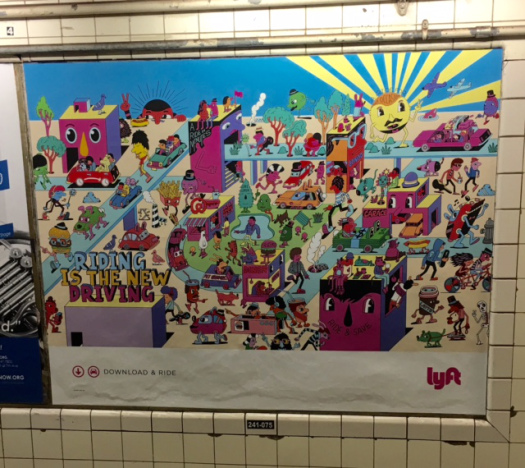
Riding is the new driving, says Lyft. Happy news right? Actually it's not so great. Uber and Lyft cars spend between 40-60 percent of their time "deadheading" with no passenger at all, meaning even trading a car trip for an Uber or Lyft trip increases emissions, congestion and crashes.
Uber: The bus sucks. Take a car
This ad appeals not very subtly to classism against the bus. You're too important to ride a bus like a commoner, says Uber.
Uber knows its audience. Studies have shown Uber riders are much wealthier than the average city resident. When these folks pile out of buses and into private cars, they worsen congestion which traps lower-income riders in slower bus commutes — an added equity cost.
Lyft: Don't just use cars now and then. Actually use them to commute
Here's Lyft going after the bread and butter of transit agencies: Commuters — in New York City, no less.
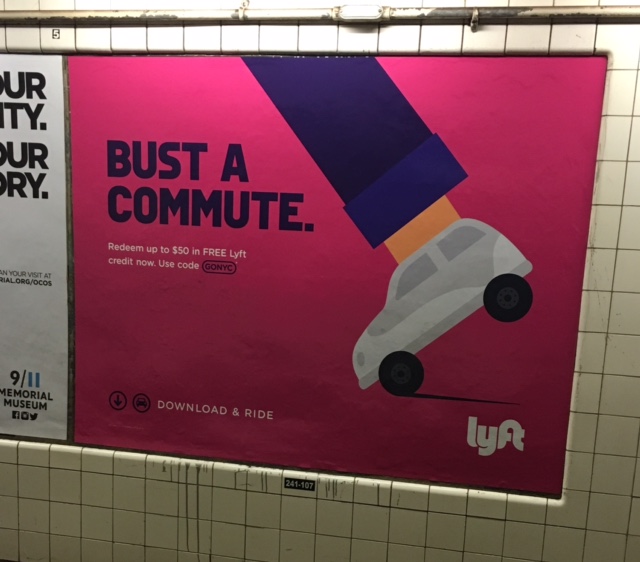
Uber: Actually, buy a car
In this ad Uber urges people to make a huge upfront investment in a depreciating asset in order to make garbage wages as a contract worker with no benefits.
New car registrations increased faster in cities with high Uber and Lyft adoption rates, according to a recent University of Chicago study. It's clear that Uber explicitly encouraged that.
Uber/Lyft: The subway sucks. Take a car instead
Jarrett Walker at Human Transit, pointed out last year, Uber and Lyft advertising on New York City's subway and other major transit hubs trying to lure riders off the most efficient form of transport into the least efficient in the most congested cities in the country especially bad. But that is exactly what they are doing.

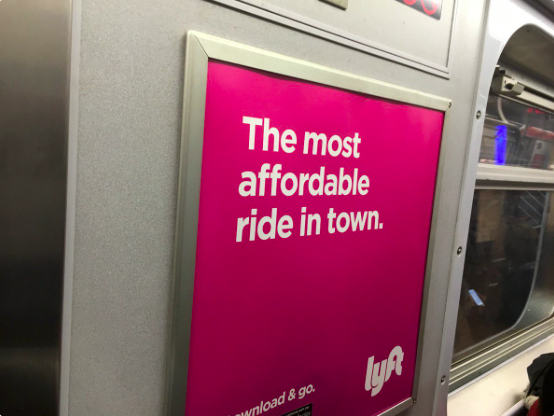
And it worked. A study from Boston found 42 percent of Uber and Lyft users were substituting the services for transit. Another study showed that vehicle miles traveled from Uber and Lyft increased the fastest in cities -- like New York and Boston -- that had relatively strong transit ridership, prior to their arrival.
Now, in the interest of fairness, some of Uber and Lyft's ads did focus on offering "first-mile, last-mile" connections, that comported with the way they like to officially present themselves: as being complementary with transit, as opposed to competition. But many of these other ads clearly belie that claim.
